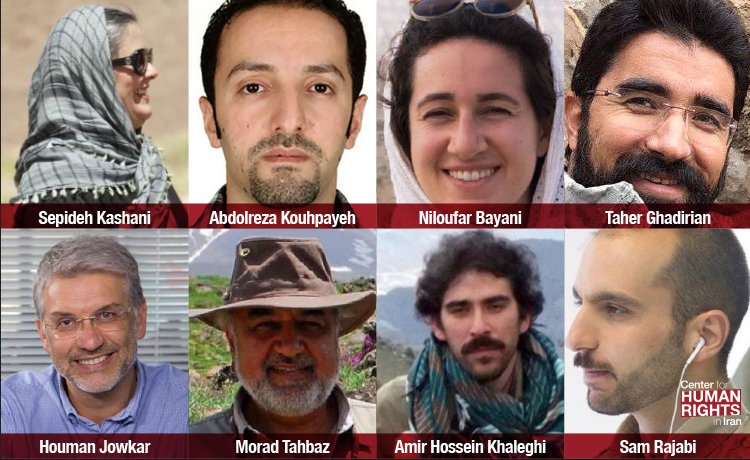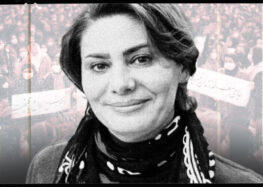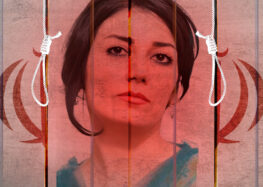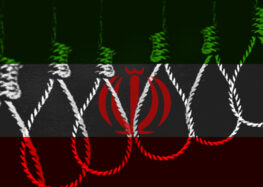Jane Goodall Among 132 Conservationists Calling for Jailed Colleagues to Receive Fair Trial in Iran

Dozens of conservation practitioners and scholars, including renowned primatologist Jane Goodall, have issued an impassioned defense of eight of their colleagues who have been detained in Iran since January 2018 without due process and charged with crimes that could carry the death penalty.
In an open letter published on November 28, 2018, 132 distinguished conservationists and professors said they stood by the “innocence of the conservationists in question” and urged Iranian authorities “to call for a fair and just evaluation of the evidence, access to lawyers of their choice and a transparent trial.”
“Some of us are ready to provide evidence and witness testimony upon request,” added the signatories in the letter addressed to several Iranian officials including Supreme Leader Ali Khamenei, head UN envoy Gholamali Khoshroo and Judiciary Chief Sadegh Larijani.
That same day, Iran Prosecutor General Mohammad Javad Montazeri had claimed the detainees—all current and former employees of the Tehran-based Persian Heritage Wildlife Foundation (PHWF)—had engaged in espionage because they had installed cameras to track the endangered Asiatic cheetah.
“For some years, the US and Israel have been infiltrating sensitive and vital locations in the country through their agents in the environmental field,” he said at a meeting with clerics in the city of Qom on November 28.
“They installed cameras so they could supposedly watch some animal,” added Montazeri.
According to the expert conservationists, “camera traps”—remote-activated camera equipment that includes a motion sensor—are an “essential tool in providing a critical basis for both science and conservation strategies to save species from extinction.”
They added: “All of the conservationists in question have dedicated their lives to the conservation of wildlife in Iran, including the critically endangered Asiatic cheetah. Throughout their careers, they have always promoted the image of Iran in the international conservation community and applauded its efforts to conserve wildlife while facing many other challenges. They have also inspired young biologists and conservationists in Iran to follow in their footsteps.”
The detainees—Houman Jowkar, Taher Ghadirian, Morad Tahbaz, Sepideh Kashani, Niloufar Bayani, Amir Hossein Khaleghi, Sam Rajabi and Abdolreza Kouhpayeh—have been held with extremely limited access to counsel in Tehran’s Evin Prison since their arrests by agents of the Islamic Revolutionary Guard Corps’ Intelligence Organization on January 28 and 29th despite being cleared of espionage by the Intelligence Ministry.
Attorney Mohammad Hossein Aghasi, who has been officially allowed to represent Rajabi, told CHRI on October 22 that Ghadirian, Tahbaz, Kashani and Bayani have all been charged with “corruption on earth,” which could carry the death penalty.
Khaleghi, Rajabi and Kouhpayeh have still not been charged.
The PHWF’s Iranian Canadian chairman, Kavous Seyed-Emami, died in Evin Prison under highly suspicious circumstances two weeks after he was arrested along with the others.
No one has been held responsible for Seyed-Emami’s death, which officials claimed was a suicide before there was an autopsy, and his wife, Maryam Mombeini (also Canadian), has been banned from leaving Iran and repeatedly interrogated since Seyed-Emami’s passing.
In February 2018, shortly after Seyed-Emami’s death, the UN issued a statement urging Iran to free the conservationists (commonly referred to in media reports as environmentalists) and stop arbitrarily arresting them.
“The detention and punishment of environmentalists for their work to conserve and protect the natural environment cannot be justified,” said several UN human rights experts in their joint statement.
“Nowhere in the world, including Iran, should conservation be equated to spying or regarded as a crime,” they added. “Detention of human rights defenders for their work is arbitrary in nature.”






